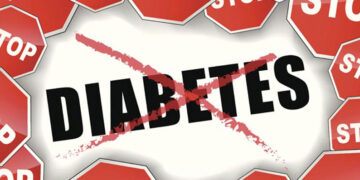Why do we always raise our voices with women? Why do we celebrate the Aurat March? Why do we always stand behind women? Why do not we stand with men who suffer the same traumatic stress, pain anxiety, and stress? Why have we always said that men are painless? Today I am going to shed light on the experience of young male victims. Who suffer a lot in their life but do not disclose to others the voices of young male victims often go unheard in the discourse surrounding rape cases.
In Pakistan, where the focus has traditionally been on female victims, it is imperative to shed light on the harrowing experiences of young boys who suffer in silence. The trauma experienced by young male victims of rape in Pakistan is often compounded by societal attitudes, stigma, and cultural norms. Boys face immense challenges in expressing their pain and seeking support due to the prevailing misconception that males are less likely to be victims of sexual assault. The lack of acknowledgment and understanding of their trauma perpetuates a cycle of silence and neglect. Young boys who survive rape often face severe social stigmatization and victim-blaming. The fear of being ostracized or labeled weak prevents them from coming forward and sharing their experiences. This societal response perpetuates the trauma and denies them the support and justice they deserve.
The psychological consequences of rape are profound, irrespective of gender. Young male victims face a range of emotional challenges, including post-traumatic stress disorder, anxiety, depression, and self-blame. Many survivors develop coping mechanisms to deal with their pain and trauma, such as isolation, self-harm, or substance abuse. There are many causes of young boy rape reported in Pakistan.
Let’s talk about the incident in Sahiwal where a 9 years old faced a horrible incident. He was a student of a madrasa; his mother died, and his father was mentally not fine. He was completing his religious education in Madrasa. When his teacher and senior students gang raped him, the child told the police he was gang-raped by his teacher and a senior student in the hujra of ‘Qari Sahib’ at night. After his condition got worse due to the bleeding in the morning, the seminary head left him home and threatened him with consequences if he told anybody about the incident. On seeing his condition, the child’s uncle informed Rescue 1122 and the police.
Rescue 1122 shifted the boy to the District Headquarters (DHQ) Hospital Khanewal where the doctors confirmed the gang rape. The hospital sources said the child was suffering from mental and physical trauma.
There are so many causes like this happening in Pakistan. It is essential to challenge the existing narrative surrounding rape cases and acknowledge the equal pain experienced by male victims. Media campaigns, educational programs, and public discussions should emphasize the importance of addressing all cases of sexual assault, regardless of the survivor’s gender. Society must actively work towards eliminating the stigmatization and victim-blaming faced by young male survivors. Empathy, understanding, and supportive environments can help foster an atmosphere in which victims are encouraged to come forward and seek justice without fear. Legal frameworks need to be reformed to ensure that male victims of rape have equal access to justice. This includes sensitizing law enforcement agencies, judiciary, and healthcare professionals about the specific challenges faced by male survivors.
The trauma experienced by young male victims in rape cases in Pakistan is an issue that demands immediate attention and action. It is crucial to raise awareness and address the issue of male victims in rape cases in Pakistan. It is important to recognize that both men and women can be victims of sexual assault, and their experiences deserve equal attention, support, and justice. By shedding light on the experiences of young male victims and advocating for their rights, we can work towards creating a society that supports and empowers all survivors, irrespective of their gender.

















